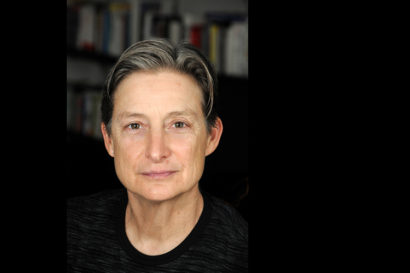Judith Butler on Americans’ rage, ‘nonsensical’ Electoral College
One of the insights that Butler, a professor of comparative literature, says she’s had to accept is how angry the electorate was — how much hatred was unleashed by Trump.
November 17, 2016
When it became clear that Republican Donald Trump was going to win the presidency, UC Berkeley professor and feminist philosopher Judith Butler experienced what many did: shock.
“I think we felt kind of indicted as intellectuals who thought, ‘Oh, no rational person would vote for him,’” she tells host David Runciman on “Talking Politics,” a podcast out of the University of Cambridge. “’No thinking person would vote for him. It’s absurd. It’s impossible.’ We were out of touch.”
One of the insights that Butler, a professor of comparative literature, says she’s had to accept is how angry the electorate was — how much hatred was unleashed by Trump. A great deal of the anger in the broader American public was economic, she says: “The idea that the future horizon has been closed for many people and for the next generation.”
“We have many different types of rage coming together in the Trump win,” she says. “I think that the Clinton campaign thought that Trump’s hatefulness would indict him and disqualify him, but actually a large number of people identified with hateful rage and felt that their hateful rage was licensed — even liberated — by Trump.”
Part of the problem, she says, is the “nonsensical” Electoral College, which can give the presidency to a candidate who didn’t receive the majority of the popular vote. She notes that while there is a petition to abolish the institution that has been signed by more than 4 million people, what the country needs is a “thoughtful, deliberate movement” to abolish the college.
Also, Butler points out, only about half of all eligible people voted, so Trump received only about a quarter of Americans’ support.
“We could simply say, ‘What does it mean that we have a system in which this one person has such enormous power with only 25 percent support?’ But we also have a second problem… which is that apparently, as a country, we have voted through democratic means for a candidate who may well destroy constitutional democracy as we know it.”
Listen to the full interview with UC Berkeley professor Judith Butler on “Talking Politics.”
